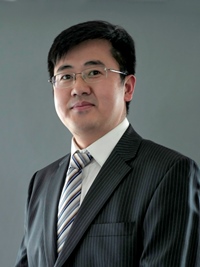Energy Materials & Nanocatalysis Research Group was established in March 2015. There are group members from Fudan University, Guangxi University, Beijing University of Technology, Schlumberger Cambridge Research Center and other scientific research institutions, with research background covering materials science, industrial catalysis, electrocatalysis, fuel cell and other subjects. The main research focused on the study and development of functional materials and nanocatalysts for various application area such as water electrocatalysis for hydrogen production, fuel cell, batteries and syngas conversion.
1. Study, understanding and development of non-precious metal water electrolysis electrocatalysts for hydrogen production.
2. Study, understanding and development of single-atom, non-precious metals and low Pt catalysts for PEM fuel cells.
3. Research and development of Fischer-Tropsch nanocatalysts for high efficient syngas conversion.
